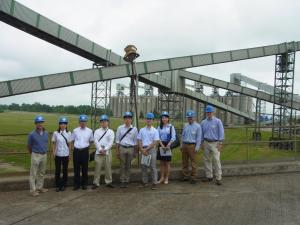Japan has a well-developed regulatory system for biotechnology but its biotech event approval system is challenged to keep current with the many new biotech events posed in the near future. While this challenge is not unique to Japan, the volume of U.S. corn exports to Japan adds a special urgency to the need to avoid disruption to the trade. Japan imports 10-15 million metric tons (393.7-590.5 million bushels) of U.S. corn a year, which means that both Japanese end-users and U.S. grain producers need Japan’s regulatory system to remain science-based, risk-based and well-coordinated with the United States’ system.
Full food, feed and environmental approvals are required on genetically modified organisms before they can be exported to Japan. To obtain these necessary approvals, petitions are sent to individuals expert committees through responsible government offices. The responsible government offices consist of less than 10 officials and the committees consist of 10 to 20 part-time non-government scholars.
Last week, the U.S. Grains Council escorted a team of Japanese regulators to travel to the United States to educate them on updates in U.S. biotech regulations and technology developments. These officials rotate every two to four years so newly appointed regulators are not necessarily aware of all the biotech issues. Part of the goal of last week’s visit to the United States was to educate new officials on scientific risk assessment in agricultural biotech products, production and trade of biotech products.
“The Council needs to remain proactive in addressing biotech-related issues such as asynchronous approvals of biotech corn events and unintentional presence of unapproved biotech corn events,” said Tommy Hamamoto, USGC director in Japan. “The Council recognizes the need for more efficient and streamlined biotech approval systems in Japan in order to accommodate the future expanding biotech commercialization.”
There are two ways to have Japan meet these needs: either to utilize field test results in other countries for efficient reviews of biotech products only for imports and/or to allow use of electronic submissions of databases, according to Hamamoto.


